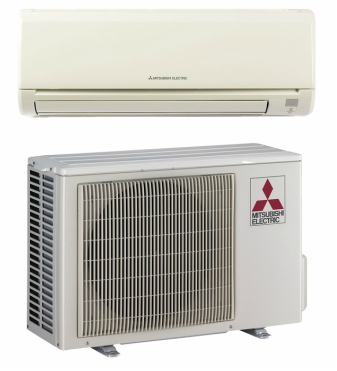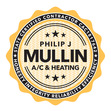I took this from the International Association of Certified Home Inspectors' website for further explanation of this process.
An excerpt from: “Defrost Cycle of a Heat Pump” - by Ben Gromicko and Nick Gromicko
https://www.nachi.org/defrost-cycle-heat-pump.htm
When a heat pump is operating in the heating mode or heat cycle, the outdoor air is relatively cool and the outdoor coil acts as an evaporator. Under certain conditions of temperature and relative humidity, frost might form on the surface of the outdoor coil. The layer of frost will interfere with the operation of the heat pump by making the pump work harder and, therefore, inefficiently. The frost must be removed. A heat pump has a cycle called a defrost cycle, which removes the frost from the outdoor coil.
A heat pump unit will defrost regularly when frost conditions occur. The defrost cycle should be long enough to melt the ice, and short enough to be energy-efficient.
In the defrost cycle, the heat pump is automatically operated in reverse, for a moment, in the cooling cycle. This action temporarily warms up the outdoor coil and melts the frost from the coil. In this defrost cycle, the outdoor fan is prevented from turning on when the heat pump switches over, and the temperature rise of the outdoor coil is accelerated and increased.
The heat pump will operate in the defrost cycle until the outdoor coil temperature reaches around 57° F. The time it takes to melt and remove accumulated frost from an outdoor coil will vary, depending on the amount of frost and the internal timing device of the system.
When the outdoor coil temperature drops to around 32° F, the thermostat closes the circuit and makes the system respond. This causes an internal timer to start. Many heat pumps have a generic timer that energizes the defrost relays at certain intervals of time. Some generic timers will energize the defrost cycle every 30, 60 and 90 minutes.
The defrost relays turn on the compressor, switch the reversing valve of the heat pump, turn on the interior electric heating element, and stop the fan at the outdoor coil from spinning. The unit is now in the defrost cycle.
The unit remains in the defrost cycle (or cooling cycle) until the thermostat on the bottom of the outdoor coil senses that the outdoor coil temperature has reached about 57° F. At that temperature, the outdoor coil should be free of frost. The frost thermostat opens the circuit, stops the timer, then the defrost cycle stops, the internal heater turns off, the valve reverses, and the unit returns to the heating cycle. A typical defrost cycle might run from 30 seconds to a few minutes. The defrost cycles should repeat regularly at timed intervals.
In summary, certain conditions can force a heat pump into a defrost cycle (or cooling cycle) where the fan in the outdoor coil is stopped, the indoor fan is stopped or electric heat is turned on, the frost melts and is removed from the outdoor coils. When the frost thermostat is satisfied or a certain pre-set time period elapses, the outdoor fan comes back on, and the heat pump goes back into the heating cycle.




 RSS Feed
RSS Feed

